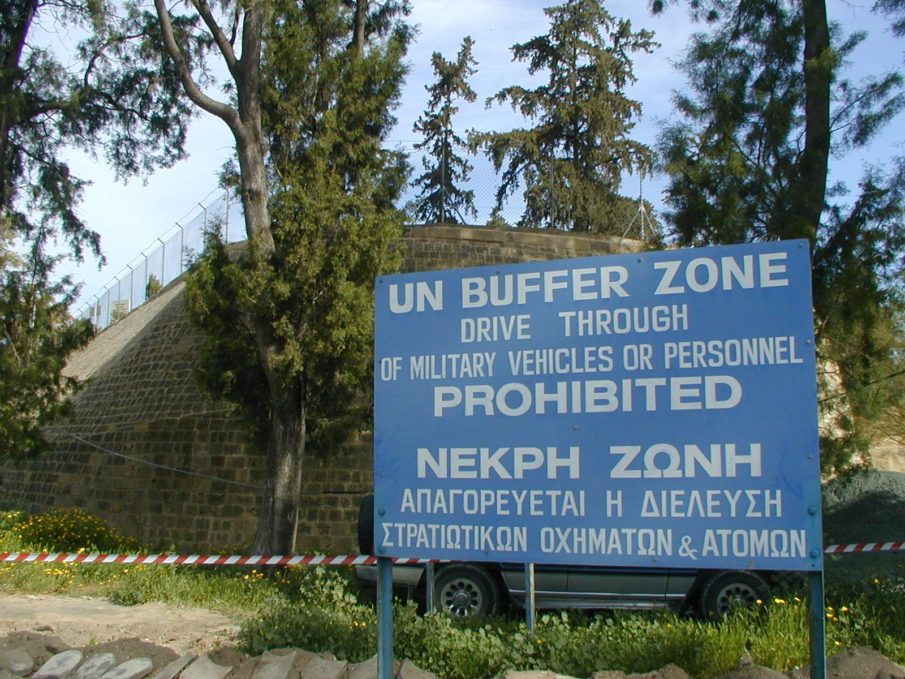The hopes of a solution to the Cyprus issue ran high during the negotiations in Crans Montana, Switzerland, only to be swiftly extinguished by Turkey’s insistence to maintain a military presence and intervention rights on the island. Negotiations came to an end on July 7th and now the attention is focused on the energy game.
The hydrocarbon deposits in the southern waters of Cyprus are what incited the unification talks after all. The Turkish-Cypriot side wants a cut, but Turkey is not so willing to lose its privileges. So they do whatever is possible to disrupt or stop the exploitation of the reserves in the waters south of the Cyprus Republic as a means of pressure.
The beginning of drilling operations by the French company Total in block 11 in mid July raised the tensions in the area after the failed talks.
Turkey sees the exploitation of the natural gas reserves in the area as a unilateral move from the Greek-Cypriot side, a national entity they don’t recognize.
For that reason they have dispatched warships to monitor the drilling operations.
Cyprus has been divided since 1974, after a Turkish invasion as a response to a Greek-led coup against Archbishop Makarios. Turkey used its status as a guarantor on the island and invaded with the pretext of the protection of the Turkish-Cypriot minority.
Since then the island is divided with a the self-declared Turkish Republic of Northern Cyprus holding 36% on the north side. TRNC is an entity that is recognized only by Turkey, while the international community considers those areas a part of the Republic of Cyprus.
The two parts of the island are divided by a UN buffer zone.
After that summer of 1974, plans and proposals have been brought forward in the attempt of a reunification.
It was nearly achieved with the so-called “Annan plan,” drafted by UN General Secretary Kofi Annan in 2002 and submitted to referendum in 2004.
At the time the plan was the most comprehensive attempt in uniting the island, as with Cyprus approaching its EU membership, the international community wanted a unified island.
Already have an account? Sign In
Two ways to continue to read this article.
Subscribe
$1.99
every 4 weeks
- Unlimited access to all articles
- Support independent journalism
- Ad-free reading experience
Subscribe Now
Recurring Monthly. Cancel Anytime.
The Annan plan was welcomed by some political parties in Greece, while the government maintained a neutral position. In Turkey, a newly elected prime minister named Recep Tayyip Erdogan was in favor. Turkish Cypriots also were livid with the possibility of a solution and the benefits of an EU membership after decades of isolation. Turkey even made mention of military action if the plan was rejected.
But despite the push from the international community the Greek-Cypriot side did not view the plan as favorable. Rallied by the Cypriot president Tassos Papadopoulos who spoke against the plan, the Greek side rejected the plan with an overwhelming majority.
I was on the island serving in the 35th Mountain Raiders Battalion a couple of months later, and the stories of those who were there during those critical days were stories of eagerness to defend the Greek Cypriot part of the island.
After that, the attempts for reunification died down, due to unwilling administrations and the economic crisis that hit Cyprus.
Hopes were rekindled with the election of favorable politicians on both sides. Nicos Anastasiades and Mustafa Akinci have held numerous meetings and mutual negotiations with the guarantor forces and are generally seen as the island’s best hope for a solution. They were even seen walking together along the UN buffer zone, in a symbolic display of mutual respect and determination to find common ground.
But with the recent diplomatic failure, the future is uncertain.
The Republic of Cyprus and the Turkish Cypriot side seem ready for a compromise, but the outside forces of the diplomatic equation make that difficult. There is a bad history to overcome and the two guarantor powers have less than amicable relations and considerable lack of trust between them.
Featured image courtesy of Wikipedia










COMMENTS